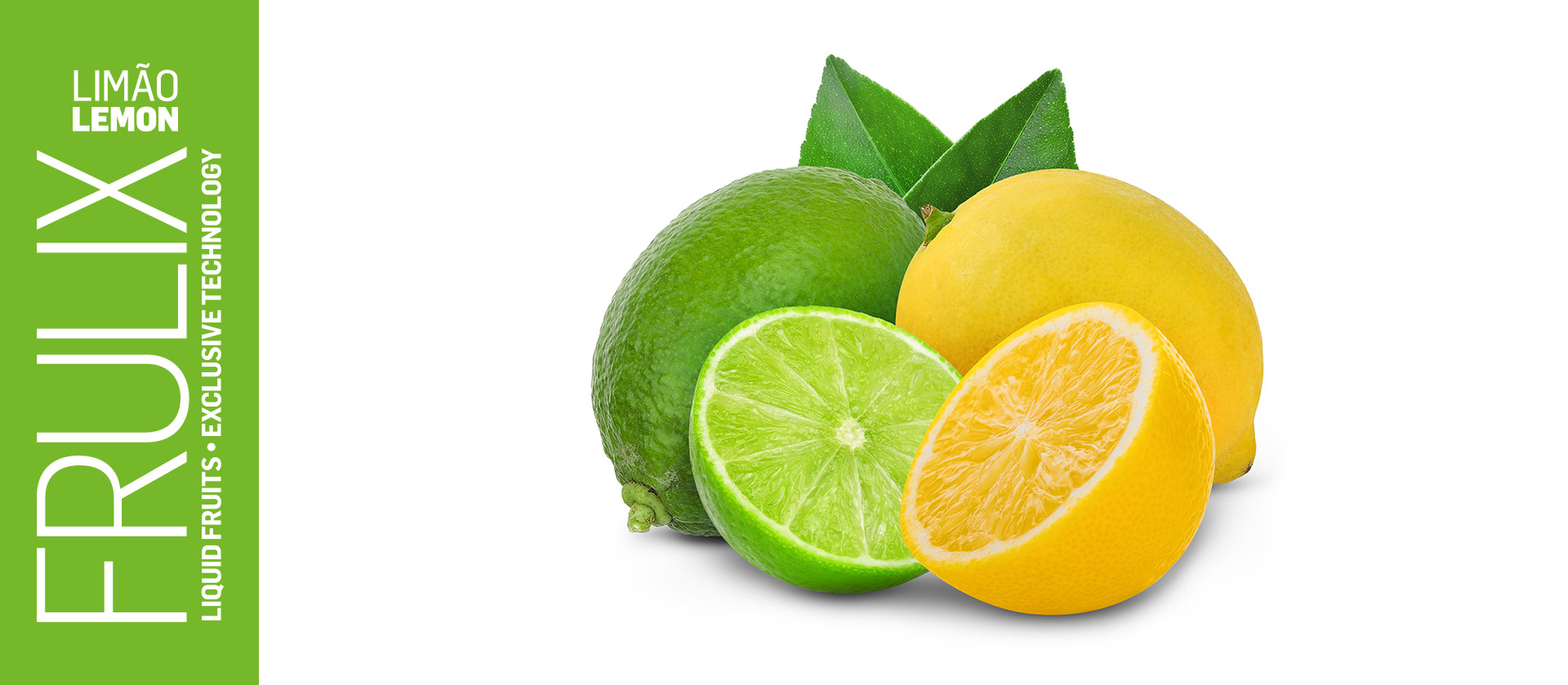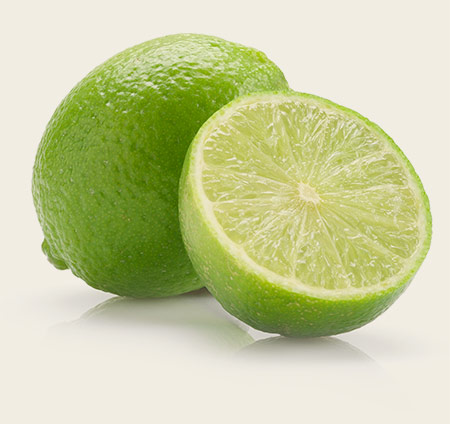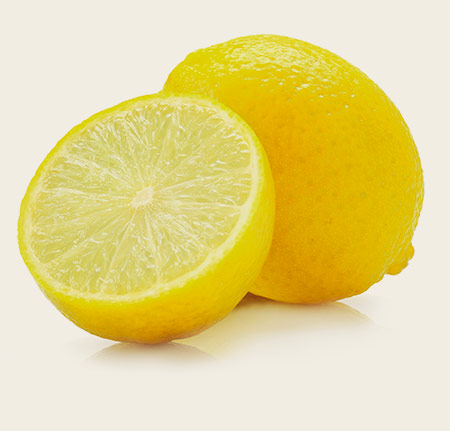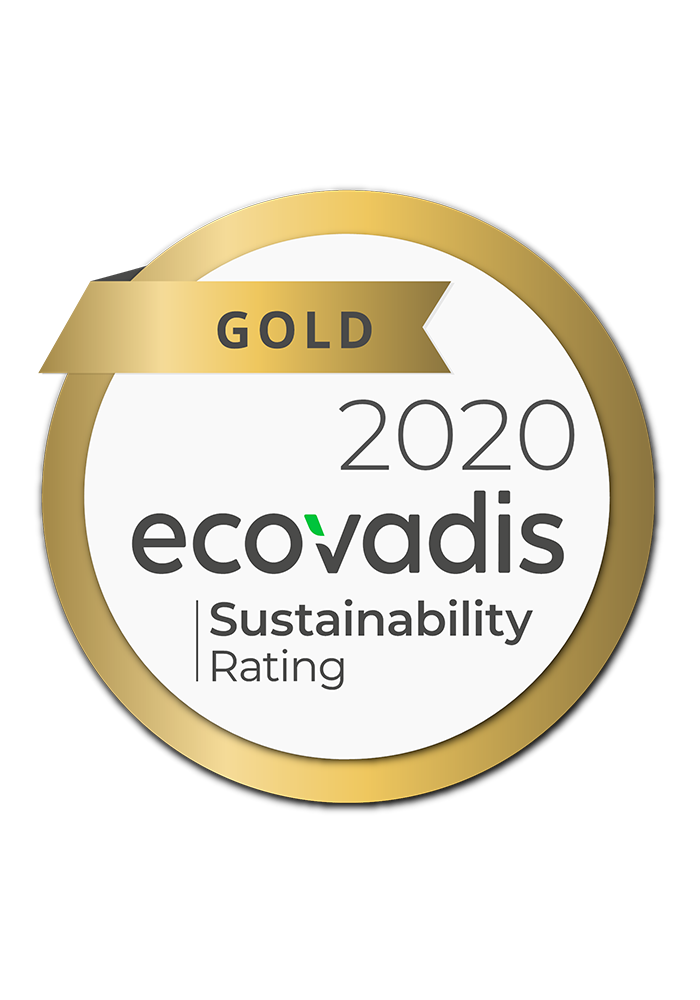
FRULIX LIMÃO (LEMON)
It’s obtained through an exclusive biotechnological process that mimics fruit’s natural ripening. Using the fruits’ native enzymes that act on the changes that occur in the texture of the fruit during its ripening, ASSESSA transforms its pulp into a crystalline liquid with all the active ingredients of the fruit, in concentrations equivalent to those found in nature.
Lemon
One of the best known and most widely used fruits in the world
The lemon tree is originally from SoutheastAsia. A member of the Rutaceae family, lemon trees are small (they don’t grow over 6 meters in height), thorny trees with many branches and light-brown bark and branches. The flowers are axillary, white or violet and clustered. It flourishes in hot or temperate regions. Lemon is the fruit of the lemon tree (Citrus x limon). Used from 1742 by the British navy to combat scurvy, lemons became popular in Brazil during the so-called Spanish Flu (the global epidemic of 1918), but it was only in the 1930s that the substance which combats scurvy was isolated and identified: ascorbic acid or vitamin C.
Lemon juice contains approximately 500 milligrams of vitamin C and 50 grams of citric acid per litre. Lemons also possess limonene, a natural, organic, chemical substance belonging to the terpene family, found in citrus fruits (mainly in the peel of limes and oranges), which is volatile and responsible for the smell given off by these fruits. Today one of the best known and most widely used fruits in the world, lemons contain vitamins B1, B2 and B3, pro-vitamin A (carotene) – which is mainly found in the peel –and vitamin A in the fresh pulp and juice. They possess large quantities of mineral salts and oligoelements such as calcium, iron, silicon, phosphorous, copper, magnesium and iodine, in addition to appreciable percentages of citric and malic acids, and small quantities of acetic and formic acids, as well as potassium and sodium citrates.

Composition
As a more concentrated product, FRULIX LIMÃO (LEMON) should be used in smaller concentrations than those normally used when making formulas with conventional extracts.
Frulix exclusive process
1. The Technology
FRULIX is obtained through an exclusive biotechnological process that mimics the natural ripening of the fruit. Using the native enzymes that change the texture of the fruit during its ripening, it is possible to transform its pulp into a crystalline liquid.
2. Production of enzymes
The fruits are harvested, washed and processed into a paste. The slurry is inoculated with microorganisms and the semi-solid mass is placed to ferment. The mixture is separated and the enzymes are removed from the wort.
3. Processing the fruits
The fruits are harvested, washed and processed into the pulp. Seeds and bark are discarded. The pulp is inoculated with the Frulix Enzymes. The residues (fibers, solids) are removed and FRULIX is obtained. The product is stabilized and preserved.
4. Frulix
The clear liquid from the separation step receives preservatives, mixture and filling.
Aplications
Vitamins, proteins and bioflavonoids present in FRULIX LIMÃO (LEMON) help to improve the elasticity of the skin, in addition to possessing antioxidant and dermoprotective properties. Due to its protective and nutritive properties, is also recommended for hair-care products.
Skin Care products
Emulsions, masks, serums, mature skin products, liquid and bar soaps.
Hair Care products
Shampoos, conditioners, hair masks, leave on and serums.

Usage levels
FRULIX LIMÃO (LEMON) is compatible with the majority of ingredients used in cosmetic formulations for the treatment of hair, and may be incorporated cold, directly into the aqueous phase of the formulas, in accordance with the suggestions for concentration found in the table below.
It is stable at temperatures of up to 90°C, in pH conditions ranging from 4.00 to 11.00.


